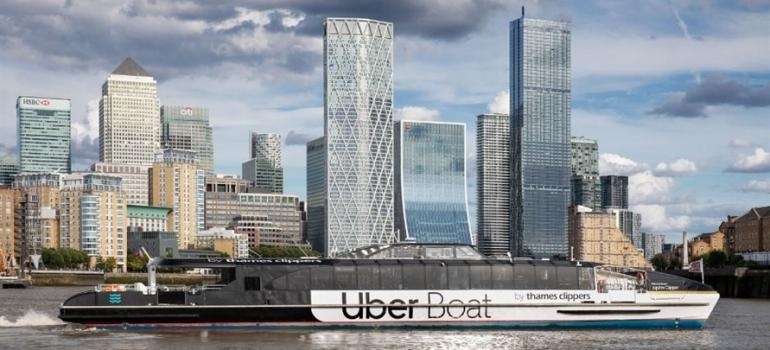28 January 2022
Uber Boat by Thames Clippers is set to launch the UK’s first hybrid high-speed passenger ferries in London in autumn 2022 and spring 2023.
The vessels, which are currently under construction at Wight Shipyard Co. on the Isle of Wight, will operate solely on battery power while travelling in London’s central zone between the Tower and Battersea Power Station piers and switch to biofuel when outside of central London. The excess power generated by the biofuelled engines will be used to recharge the vessels’ batteries.
“After the challenges of the last two years that Covid has set upon businesses, in particular in the transport sector, I’m extremely excited to be increasing our capacity to meet the demands of our customers and partners,” said Sean Collins, co-founder and CEO of Uber Boat by Thames Clippers.
“This development in technology has enabled us to take the first major steps to meet our future environmental vision. For over 20 years we have been at the forefront of innovation for the river marine sector. We are committed to supporting the sustainable growth, infrastructure and economic development on and around the river to endorse the river’s importance to London as a form of transport. As a business, we are continuing to embrace the emerging technological advances that will see us continue to develop our fleet and infrastructure, thereby supporting a sustainable future in our industry.”
The newbuilds are part of Uber Boat by Thames Clippers’ strategy to achieve net-zero emissions with all newbuilds by 2025 and for its wider fleet, infrastructure and environmental footprint by 2040. The ferry operator is also working on three green marine feasibility projects funded by the UK’s Department for Transport (DfT), the outcomes of which are due in spring 2022 and should further help inform the business on its route to net zero.
“We’re looking ahead with this hybrid design, ensuring easy conversion to green hydrogen or another renewable energy source – something we’re also focusing heavily on with the new projects we’re undertaking thanks to recent DfT funding. It is the next step in our strategy to net zero and, ultimately, tailpipe zero.”


